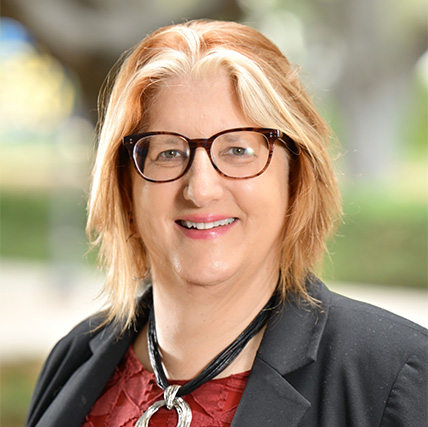Stern, Alexandra Minna
2300 Murphy Hall
Tel: 310.825.4173 / Fax: 310.267.4339 / Email
Ph.D., History, University of Chicago
M.A., Latin American studies, UC San Diego
B.A., Central American studies
Alexandra Minna Stern, Ph.D., has served as dean of the UCLA Division of Humanities since November 2022.
Stern has faculty appointments in the UCLA departments of English and history, and in the UCLA Institute for Society and Genetics. She has received numerous grants for her research, including funding from the National Endowment for the Humanities, National Institutes of Health and the Robert Wood Johnson Foundation.
Most of Stern’s research has focused on the uses and misuses of genetics in the United States and Latin America. She is the author of the award-winning Eugenic Nation: Faults and Frontiers of Better Breeding in Modern America, the second edition of which was published in 2015 by University of California Press. She also is the author of Telling Genes: The Story of Genetic Counseling in America (Johns Hopkins University Press, 2012), which was named a Choice 2013 Outstanding Academic Title in Health Sciences.
More recently, she has conducted research on the history and cultures of ecofascism, and on the history of chaplaincy programs in modern hospitals.
Her latest book, Proud Boys and the White Ethnostate: How the Alt-Right is Warping the American Imagination (Beacon Press, 2019), applies the lenses of historical analysis, feminist studies and critical race studies to deconstruct the core ideas of the far right and white nationalism in the U.S. Following her work on that book, Stern was asked to contribute her expertise to the congressional committee investigating the January 6, 2021, assault on the U.S. Capitol.
Stern is the founder and co-director of the Sterilization and Social Justice Lab, which uses mixed methods to study patterns and experiences of eugenic sterilization in the U.S. during the 20th century. The lab’s research informed the creation of a California program, which was active from 2022 to 2023, to compensate survivors of compulsory sterilization.
